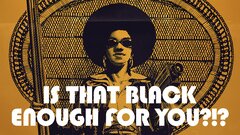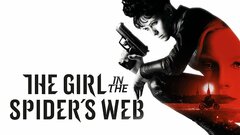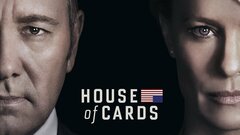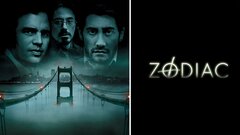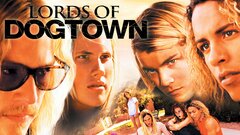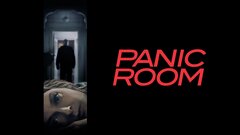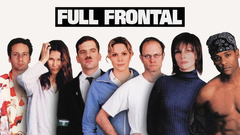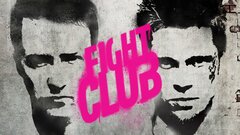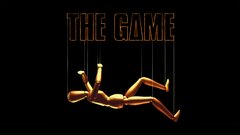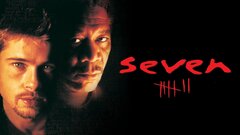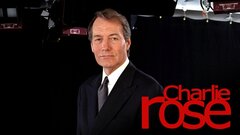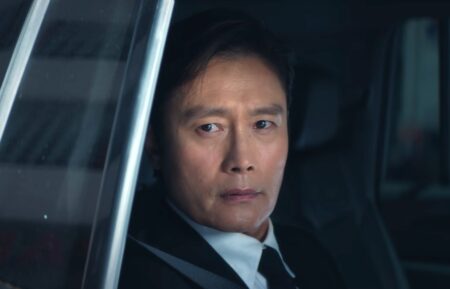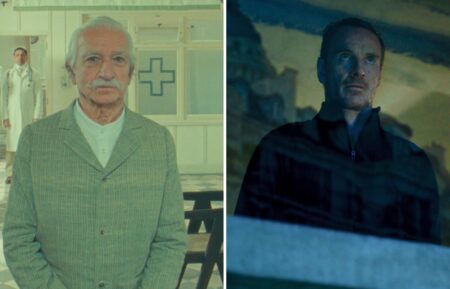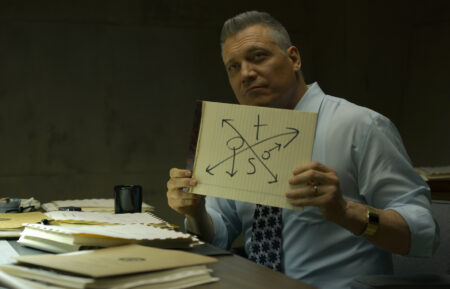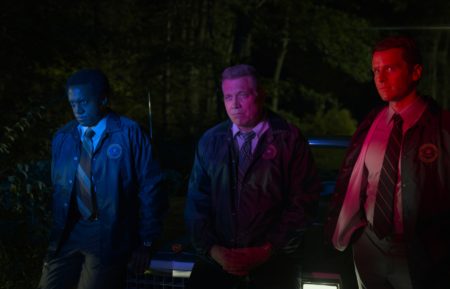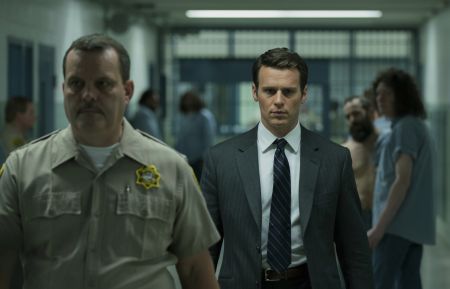One of cinema's most dazzling visual stylists, whose dark view of human nature often overshadowed the stark images of his films, director David Fincher established himself in the world of commercials and music videos before becoming one of Hollywood's most respected talents. After an inauspicious debut with the critically maligned "Alien 3" (1992), Fincher made his mark with the unforgettable, "Se7en" (1995), a stunningly dark and morose thriller that contained perhaps one of the most gut-wrenching endings of modern filmmaking.
With his bona fides set in stone, Fincher went on to direct another challenging - and brutally violent - film, "Fight Club" (1999), which allowed the director a full palette in which to display his stylish gifts. He occasionally settled back into standard thriller territory, as he did with "Panic Room" (2002), or saw an otherwise excellent film fail at the box office like with "Zodiac" (2007), but later emerged as a perennial Oscar contender with "The Curious Case of Benjamin Button" (2009) and "The Social Network" (2010), both of which were radical departures from his previous gritty and violent films.
By the time he directed the highly anticipated adaptation of "The Girl with the Dragon Tattoo" (2011), there was no disputing Fincher's ink black vision and refusal to believe in mankind's better nature marked him as a unique and refreshingly honest filmmaker worthy of considerable praise.
Born on May 10, 1962 in Denver, CO, Fincher was raised in Marin County, CA, where he came of age at a time when the famed Zodiac killer terrorized Northern California in the late 1960s. The son of a journalist and bureau chief for Life magazine, and a mental health nurse who worked in a methadone clinic, Fincher knew he wanted to be a director when he was eight years old after he began making his own movies with an 8mm camera he received for his birthday. Growing up in the Bay Area also exposed him to George Lucas, whom he watched shoot "American Graffiti" (1973) while hanging out with his friends.
After attending Ashland High School in Oregon, Fincher returned to California, where he landed a job loading cameras and performing animation duties for director John Korty. He then worked for Lucas at the famed visual effects studio, Industrial Light & Magic when he was just 18, where Fincher spent four years performing matte photography on films like "Return of the Jedi" (1983) and "Indiana Jones and the Temple of Doom" (1984).
Fincher left ILM in the early 1980s for an opportunity to direct his first commercial, a public service ad for the American Cancer Society warning about the dangers of smoking during pregnancy. His shocking commercial - which featured a fetus smoking inside the womb - generated serious buzz, leading to more spots for Revlon, Converse, Nike, Pepsi and Levi's. Despite the steady work, Fincher wanted to expand his horizons and left commercials to direct music videos. As a founder of Propaganda Films in 1986, he quickly took that company to the top of the field, helming memorable videos for Don Henley ("The End of the Innocence"), Paula Abdul ("Straight Up" and "Cold Hearted"), Billy Idol ("L.A. Woman") and Aerosmith ("Janie's got a Gun").
He did some of his best work for Madonna, creating a sleek noir world of iron factories and bondage for "Express Yourself" (1989), then staging the equally memorable "Vogue" (1990), complete with glossy black-and-white photography evoking a variety of movie divas of yore, and slick editing to Madonna's pop appropriation of the vogue dancing of Harlem drag queens.
Having always wanted to direct science-fiction movies, Fincher jumped at the chance to make his feature debut with "Alien 3" (1992), naively assuming that 20th Century Fox would let him make the movie he had pitched to get the job. He soon learned, however, that his music video skirmishes had not prepared him for the all-out war of piloting a lucrative franchise previously steered by Ridley Scott and James Cameron.
With the shooting script a scant 45 pages on the first day, Fincher knew he was in trouble, but soldiered on when his agent told him he would never work again if he quit. Meanwhile, Fincher remained allies with star Sigourney Weaver throughout while clashing repeatedly with studio executives nervous about their jobs. Individual sequences had much to recommend and Fincher introduced his trademark dark visual assurance in a full-length film. But too much interference from higher-ups freaked out about production costs and trying to imitate past formulas resulted in a less-than-stellar release. The killing off of several of the beloved leads in the film - including its star - did little to endear it to moviegoers.
Doubting he would ever direct another feature, Fincher returned to music videos, earning a Grammy Award for the Rolling Stone's "Love Is Strong" (1994).
Fincher kept reading screenplays and one finally crossed his desk that excited him from beginning to end. Unlike his first film, "Se7en" (1995) was a coherent script by Andrew Kevin Walker without any baggage or lofty expectations attached. Fincher, this time, pulled no punches delivering an extraordinarily gripping, unrelenting story of a serial killer (Kevin Spacey) murdering his victims according to the seven deadly sins in the Bible.
Dark, moody and unnervingly malicious, "Se7en" was unsettling from its opening credits straight through to its shocking ending where a young detective (Brad Pitt) who had been transporting the crafty killer to his last victim finds the head of his wife (Gwyneth Paltrow) in a box, which Fincher had fought to keep. Often only the flashlights of the two detectives could penetrate the gloom of the film's inky-black darkness - a trick Fincher first used in Aerosmith's "Janie's got a Gun" - and many critics dismissed the picture as intentionally murky and pretentious. Audiences, however, did not agree. Almost overnight, on the strength of its overwhelming box office, Fincher became one of Hollywood's hottest directors and Brad Pitt an instant A-list star.
Next came "The Game" (1997), a nightmarish, "Twilight Zone"-style thriller that projected the same sense of suffocating enclosure and mounting despair as "Se7en." The sterile universe of ruthless tycoon Nicholas Van Orton (Michael Douglas) spirals out of control when he accepts the invitation of his younger brother (Sean Penn) to indulge in unusual "entertainment," courtesy of the mysterious Consumer Recreation Services. Sucked into a vortex of paranoia and uncertainty, Van Orton eventually wakes up somewhere in Latin America as a penniless nobody and spends the rest of the film trying to get to the bottom of his increasingly dangerous predicament.
Admittedly a stunning technical achievement, audiences still found "The Game" too cool and cerebral, particularly when it was revealed at the end that Van Orton's conflict was nothing more than a hoax. With "Fight Club" (1999), Fincher latched onto his most disturbing material yet, delivering an adrenaline-charged satire sending-up both corporate-consumer culture and men's need for machismo. The complacent, well-ordered world of a mundane office drone and insomniac (Edward Norton) comes apart when he encounters the destabilizing force of a sadomasochist (Brad Pitt) who prescribes physical violence in the form of a secret society of men beating each other to a pulp as an antidote to the lack of authenticity and the increasing mediocrity of modern life.
Bold, inventive and undeniably Fincherian, "Fight Club" left audiences wondering what the director would do next.
Unfortunately, Fincher answered with a gimmicky, but otherwise standard thriller, "Panic Room" (2002), starring Jodie Foster as a newly-divorced mom confined to a built-in panic room with her daughter (Kristen Stewart) when three burglars (Jared Leto, Forest Whitaker and Dwight Yoakam) break in and begin terrorizing the seemingly defenseless inhabitants while trying to find a secret stash hidden inside the house. Fincher relied heavily on fantastic images and camera moves - flying through keyholes and snaking along wires inside walls - amplifying the visual palette, but neglected other crucial elements, namely character development and emotional depth.
The director faced several problems during production. The original lead was supposed to be played by Nicole Kidman, but she left after 20 days of shooting because of a knee injury suffered on her previous film, "Moulin Rouge" (2001). With a pending actor's strike on the horizon, Foster jumped aboard and played the role with her typical intensity. During filming, however, Foster revealed to Fincher that she was pregnant with her second child, making the long and physical shoot more demanding. Reshoots were scheduled so Foster could give birth - her stomach was too big to cover in some scenes. Despite all the production problems, "Panic Room" opened to favorable reviews and ultimately performed well at the box office.
Fincher's next film, the long-awaited "Zodiac" (2007), returned to familiar territory, tackling the subject of the famed Zodiac Killer of the director's youth. An elusive killer who reveled in taunting the media and police with mind-boggling cryptograms, the Zodiac is doggedly pursued by a journalist (Robert Downey, Jr.), a police detective (Mark Ruffalo) and a cartoonist (Jake Gyllenhaal), all of whom lose control of their own lives, while the killer is never discovered.
Chock full of Fincher's stylish camerawork, brutal offscreen violence and moody atmosphere, "Zodiac" was a worthy entry into the director's canon, even though in the end it ultimately fell flat at the box office. Fincher performed a 180 degree turn - at least in terms of tone and style - with his next film, "The Curious Case of Benjamin Button" (2008), a heart-wrenching fairy tale about a man (Brad Pitt) who is born in his eighties and mysteriously ages backwards. The tender film brought Fincher considerable acclaim, including nominations at the Golden Globes and Academy Awards for Best Director.
Though "Benjamin Button" failed to win Fincher any major awards, the film marked a decidedly new path for the director, who was rapidly becoming one of Hollywood's most fascinating talents. He continued to diversify his portfolio with "The Social Network" (2010), a compelling legal thriller centered on Facebook creator Mark Zuckerberg (Jesse Eisenberg) and his alleged theft of the social networking idea from his Harvard roommates, which became one of the most critically hailed films of that year.
While some critics cited Fincher and writer Aaron Sorkin for playing fast and loose with some of the facts, there was no doubt that they had created a richly compelling throwback to the days of "All the President's Men" (1976) and a film that many declared was the defining movie of the first decade of the 21st century. While "The Social Network" was lavished with praise and untold number of award nominations, Fincher received his proper due, including an Academy Award nomination and a Golden Globe win for Best Director in January 2011. Once again, however, he failed to win the big one and moved on to direct his next film, "The Girl with the Dragon Tattoo" (2011), a remake of the Swedish thriller of the same name that itself was an adaptation of the best-selling novel by Stieg Larsson.
The highly anticipated thriller focused on Lisabeth Salander (Rooney Mara), a troubled and sexually abused goth computer expert who aides a dedicated journalist (Daniel Craig) in trying to solve the murder of a young woman who was part of a powerful family.
Fincher's next move was quite unexpected-he helmed the first two episodes of the 2013 political drama series "House of Cards," which debuted exclusively on Netflix. Starring Kevin Spacey and Robin Wright and based on the British drama of the same name, the 13-episode first season became a huge online hit and received abundant accolades. In the fall of 2013, Fincher won his first Emmy for directing the pilot episode, and he promptly returned to feature-film work, directing the movie adaptation of Gillian Flynn's best-selling novel "Gone Girl" with Ben Affleck and Rosamund Pike. The film was released to respectful reviews and solid box office in October 2014.


